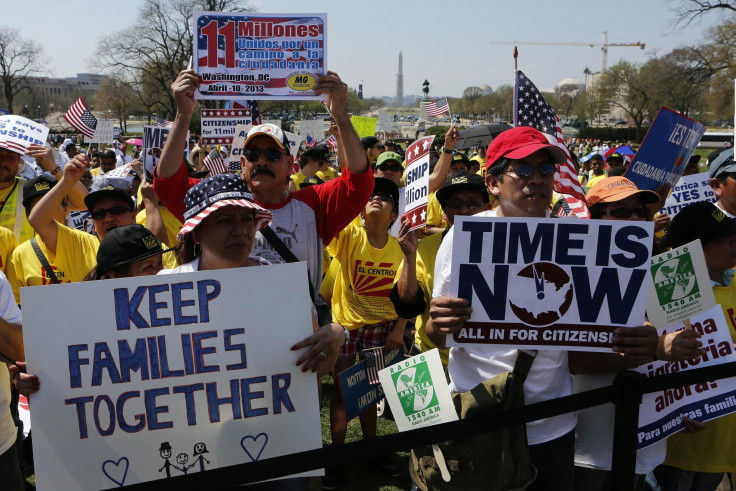Immigration Reform 2013: Democrats Want Comprehensive Bill Instead Of House's 'Deal-Breaker' Piecemeal Approach

If you thought the U.S. Senate debate over passing a 2013 immigration reform bill was tough, just wait until things get rolling in the House after the Fourth of July recess. House Republicans are not inclined to pass a comprehensive measure, and some of their Democratic counterparts are balking at the approach the GOP wants to take: breaking up the package into several bills to deal with different aspects of immigration.
“Piecemeal is no deal,” Rep. Al Green, D-Texas, told the Associated Press. “Piecemeal is a deal-breaker.”
The Senate’s legislation, passed last Thursday 68-32, was already dead to House Speaker John Boehner, R-Ohio, before the final vote. Boehner has repeatedly said the Senate measure will not be brought to the House floor. He is adamant that the House will write its own immigration legislation, but only a handful of bills have been debated so far in the lower chamber. None of them deal with a path to citizenship for immigrants in the country illegally, and probably never will. The Republican-controlled chamber just is not inclined to consider that issue a fundamental one.
“The House is not going to take up and vote on whatever the Senate passes,” Boehner said last week. “We’re going to do our own bill, through regular order, and it’ll be legislation that reflects the will of our majority and the will of the American people. For any legislation -- including a conference report -- to pass the House, it’s going to have to be a bill that has the support of a majority of our members.”
This, in effect, invokes the so-called Hastert Rule, named for the last Republican speaker, under which a bill must have the support of a majority of the GOP caucus, and not depend on Democratic votes for passage.
The problem is, like in the Senate, each party has its own idea of what is most important in the overhaul. Democrats want the 11 million undocumented immigrants legalized and put on a path to citizenship. They see it as an economic boost because of additional tax dollars this would create. House Republican bills are more focused on border security, enforcement and "E-Verify," a system that would ensure checks by employers to make sure prospective hires are in the U.S. legally, and not citizenship for the undocumented. For them, the focus is on keeping illegal crossers out, cracking down on those already in the U.S., and fulfilling the promises made in 1986 when the last big overhaul was approved.
Judiciary Committee Chairman Bob Goodlatte, R-Va., also told the media that any House-approved reform would not provide a “special pathway to citizenship.”
While Democrats may scorn this approach, they know it is the only chance to deliver a second-term domestic agenda win to President Barack Obama. That’s why others like House Minority Leader Nancy Pelosi, D-Calif., consider the single-issue approach workable. What she wants is the ability to make concessions and settle on something that can clear the House. However, she told Politico last week “to have a bill would be desirable.”
Pelosi also knows that a piecemeal approach could bring delays, which could be danger for Republicans if something isn’t enacted before the end of the year.
“We wouldn’t even be where we are right now had it not been that 70 percent of Hispanics voted for President Obama, voted Democratic in the last election,” Pelosi said. “That caused an epiphany in the Senate, that's for sure. So, all of a sudden now, we have already passed comprehensive immigration reform in the Senate. That's a big victory.”
© Copyright IBTimes 2024. All rights reserved.






















